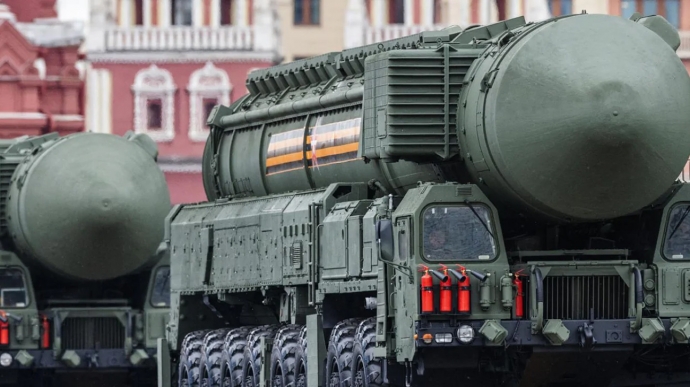Putin's statements about new Oreshnik strikes are empty threats – ISW

Analysts at the Institute for the Study of War (ISW) have reported that the capabilities of the Russian state-of-the-art Oreshnik missile are nothing new, and its use will not lead to further escalation in the war.
Source: ISW
Details: The report notes that Russian ruler Vladimir Putin's efforts to highlight the missile's technical characteristics are part of a broader information campaign.
The ISW is convinced that the focus on the missile's range and payload, comparing its destructive capabilities to those of a meteor, is intended to intimidate Ukraine and the West and to dissuade Kyiv from further strikes on Russian territory with Western systems.
Quote: "Even Putin's threat of strikes on ‘decision-making centers’ in Kyiv rings empty—Russian forces regularly strike civilian and critical infrastructure in the city of Kyiv with drones and nuclear-capable missiles."
More details: Ukrainian President Volodymyr Zelenskyy summed up this fact on 29 November in response to Putin's statements at the CSTO Security Council meeting in Kazakhstan, saying that "Putin wants to add thousands more to the thousands of missiles that have already hit Ukraine".
Reuters, citing five sources close to US intelligence, noted on 27 November that the 21 November Oreshnik strike did not change US intelligence assessments that the Kremlin is unlikely to use nuclear weapons in Ukraine, even in response to Ukrainian strikes on Russian territory with Western weapons.
Quote: "Putin's constant flaunting of the Oreshnik and Russian missile capabilities therefore remains part of the Kremlin's reflexive control information operation and is unlikely to presage the development of particularly novel Russian deep strike capabilities."
To quote the ISW’s Key Takeaways on 29 November:
- Russian ruler Vladimir Putin continues to laud the technical specifications of the recently launched Oreshnik ballistic missile and threaten additional Oreshnik strikes against Ukraine as part of an intensified Russian reflexive control campaign aimed at forcing the West and Ukraine into self-deterrence.
- There is nothing particularly novel about the capabilities of the Oreshnik missile, and US and Ukrainian officials indicated that the Oreshnik missile does not portend a Russian escalation in the war. Putin's constant flaunting of the Oreshnik and Russian missile capabilities therefore remains part of the Kremlin's reflexive control information operation and is unlikely to presage the development of particularly novel Russian deep strike capabilities.
- The Russian military is considering establishing a separate service branch for unmanned systems, likely as part of the Russian Ministry of Defence's (MoD) in a belated effort to catch up to the establishment of the Ukrainian Unmanned Systems Forces (USF) in February 2024.
- Russian forces conducted a large series of drone and missile strikes against Ukraine’s energy grid and major defense industrial facilities on the nights of 27-28 and 28-29 November.
- Ukrainian forces conducted a series of strikes against four Russian air defence systems and radars in occupied Ukraine and two oil depots in Russia on 28 and 29 November.
- Russian Defence Minister Andrei Belousov made an unannounced visit to Pyongyang, North Korea on 29 November amid intensifying Russian-North Korean cooperation.
Support UP or become our patron!





